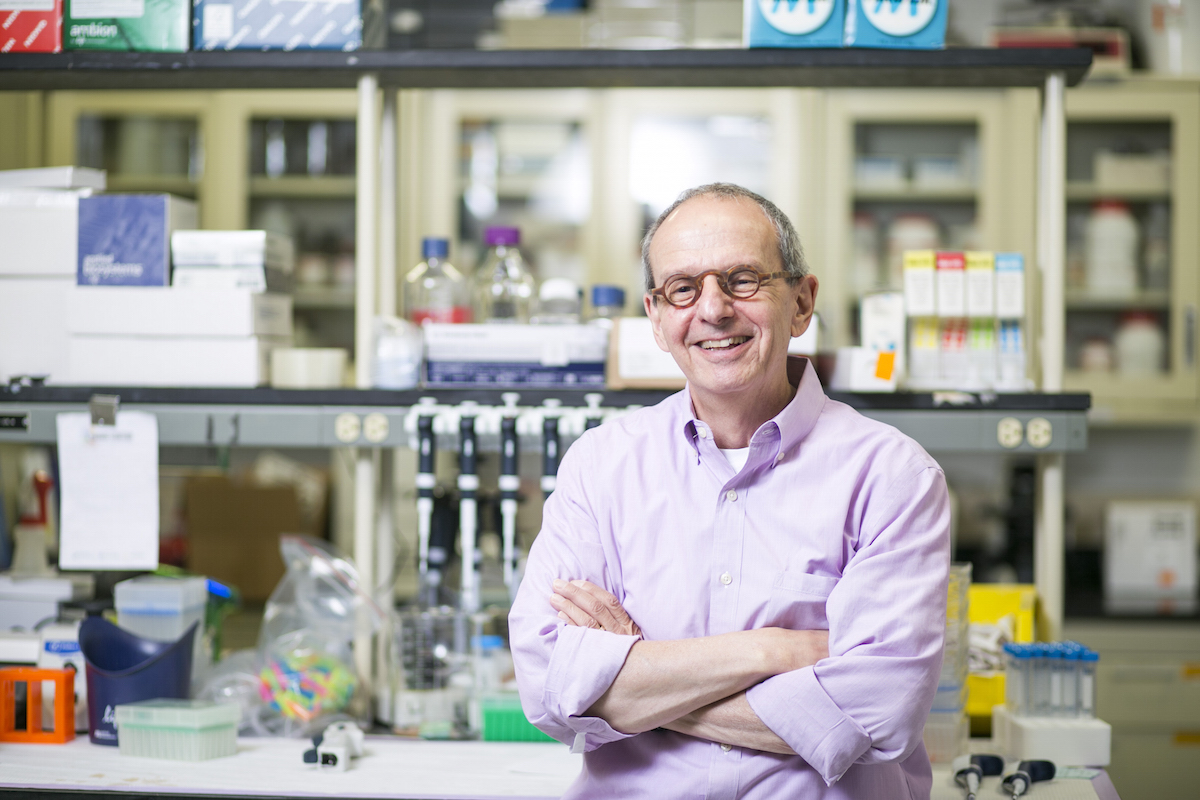Tufts Neuroscientist Says Nutrition May Be Key to Brain Health

Dennis Steindler. Photo provided to bostonmagazine.com.
Diets high in produce have been shown to fuel everything from muscle strength to weight control. Now, Tufts researcher Dennis Steindler is tacking on another major incentive to eat our vegetables: preventing brain disease.
“Diet reduces chronic inflammation in a way that drugs cannot,” says Steindler, the new director of the Neuroscience and Aging Laboratory at the Jean Mayer USDA Human Nutrition Research Center on Aging (HNRCA) at Tufts University. “We’re now exploring food as brain medicine.”
Steindler and his team are at the vanguard of a new field of research: the link between nutrition and long-term brain health. While fruits and vegetables have long been shown to reduce inflammation all over the body, Steindler is one of the first to apply this concept to the brain—specifically, with regards to inflammation associated with Alzheimer’s, Parkinson’s, and other neurodegenerative diseases.
“It’s an emerging field, but we’ve already found plenty of connections,” Steindler says, citing a recent paper that showed consumption of cocoa may significantly lower risk for age-related cognitive decline. “Anti-inflammatory fruit and vegetable components, similarly, can help facilitate memory.”
Once a patient has been diagnosed with a brain disease, his or her treatment tends to rely on drugs that target specific neurological pathways. Steindler says, however, that concentrated combinations of antioxidant-heavy fruits and vegetables, as well as foods like green tea and turmeric, could likely combat a wider array of these pathways.
“We’ve shown that [those who] don’t have a diet rich in fruits and vegetables can encourage brain cell repair by taking supplements,” Steindler says. “[Doing so] may thwart or even treat disease.”
The aforementioned supplements are highly controlled, patient-specific doses that Steindler and his team formulate post-diagnosis; tying fruit and vegetable consumption to preventing neurodegenerative disease is his next goal.
“That’s the next step for us,” Steindler says. “If you’re at particular risk for Alzheimer’s or Parkinson’s, you might need these compounds in very specific concentrations, at the specific times when you’re most vulnerable.”
And while the exact science may not be there yet, eating a produce-rich diet certainly can’t hurt.
“A lifelong healthy diet certainly does prevent inflammation,” Steindler says. “This, in turn, generally helps to fight disease.”


